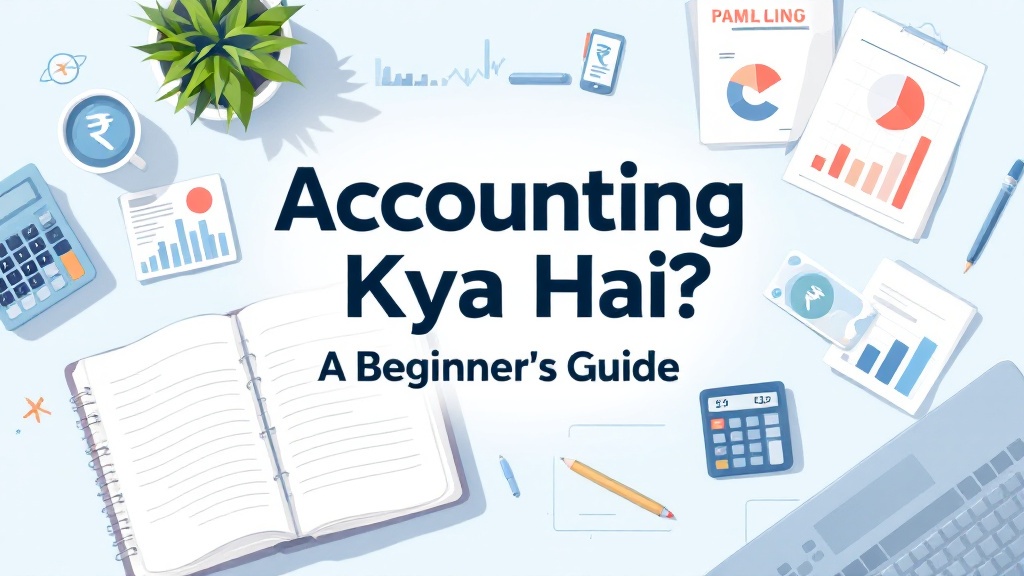Accounting Language: The Universal Language of Business Explained
Table of Contents
- What Is Accounting Language?
- Why Is Accounting Language So Important?
- Key Features of Accounting Language
- Common Terms in Accounting Language (With Simple Meanings)
- How Accounting Language Helps Businesses
- Real-Life Example: Speaking the Language of Numbers
- The Building Blocks: The Three Main Financial Statements
- How to Learn the Accounting Language Faster
- The Role of Technology in Evolving Accounting Language
- Final Thoughts: Accounting Language Is for Everyone
Most Read
[fusion_dropcap class="fusion-content-tb-dropcap"]A[/fusion_dropcap]ccounting can feel like a foreign language to many, but once you understand its basic vocabulary, it becomes a powerful tool for making smarter financial decisions. Whether you’re a small business owner, a student, or just someone trying to better understand your finances, grasping the “language of accounting” can unlock a whole new level of financial clarity.
In this blog, we’ll break down the concept of accounting language—what it is, why it matters, and how you can become fluent in it without needing a finance degree.
What Is Accounting Language?
Accounting language is the standardized way in which financial information is recorded, interpreted, and communicated. Just like how we use spoken language to talk to each other, businesses use accounting language to share their financial health with stakeholders such as investors, lenders, auditors, and government bodies.
It is the backbone of financial reporting and helps translate business activities into understandable and quantifiable data.
Why Is Accounting Language So Important?
Imagine a world where every business used its own way of tracking finances. Investors would be confused, tax authorities would struggle, and decision-making would be chaotic. Accounting language solves this by:
- Ensuring consistency across financial records
- Making comparison easy between businesses
- Building trust through transparency
- Supporting informed decision-making
In short, it’s the universal financial language that keeps the business world running smoothly.
Key Features of Accounting Language
1. Standardized Terminology
Accounting language follows a set of globally accepted terms, like:
- Assets
- Liabilities
- Revenue
- Expenses
- Capital
Understanding these terms is the first step in becoming fluent in accounting.
2. Based on Principles
The language is governed by frameworks like:
- GAAP (Generally Accepted Accounting Principles) – in countries like the US
- IFRS (International Financial Reporting Standards) – globally adopted
These ensure that financial data is presented in a logical, fair, and transparent manner.
3. Quantitative & Objective
Accounting avoids emotions and focuses on numbers. Every business activity is recorded in measurable financial terms, ensuring objective reporting.
4. Clear & Comparable
Because accounting follows a standard format, anyone familiar with its language can easily understand and compare financial statements from any company.
Common Terms in Accounting Language (With Simple Meanings)
Let’s simplify some common accounting terms:
| Term | Simple Meaning |
|---|---|
| Asset | Anything the business owns (cash, property, equipment) |
| Liability | What the business owes (loans, unpaid bills) |
| Equity | Owner’s share in the business after debts |
| Revenue | Money earned from sales or services |
| Expense | Money spent to run the business |
| Profit | What’s left after expenses are subtracted from revenue |
Learning these is like learning the ABCs of accounting!
How Accounting Language Helps Businesses
Accounting isn’t just about compliance; it’s a powerful decision-making tool. Here’s how it helps:
✅ Financial Planning
Business owners can create realistic budgets and forecasts based on past performance.
✅ Performance Tracking
With the help of financial statements like the Profit & Loss Statement, businesses can track how well they are doing.
✅ Legal Compliance
Filing accurate tax returns or applying for loans becomes easier and smoother.
✅ Business Valuation
When businesses are sold, merged, or funded, accounting language provides the data to evaluate worth.
Real-Life Example: Speaking the Language of Numbers
Let’s say you run a small bakery.
- You spent ₹30,000 on ingredients and utilities (Expenses)
- You earned ₹50,000 from cake sales (Revenue)
- Your profit = ₹20,000 (Revenue – Expenses)
Now, if you want to:
- Apply for a business loan
- Attract an investor
- File your taxes correctly
You will need to present these numbers using accounting language through proper financial statements. That’s how this language turns your efforts into something the financial world understands.
The Building Blocks: The Three Main Financial Statements
Every business uses three core financial statements to communicate in accounting language:
1. Balance Sheet
It shows what the business owns (assets), what it owes (liabilities), and what belongs to the owner (equity) at a specific point in time.
2. Profit and Loss Statement (P&L)
Also called the Income Statement, it shows the business’s income and expenses over a period—revealing the profit or loss.
3. Cash Flow Statement
It tracks how cash flows in and out of the business, helping you understand liquidity (your ability to pay bills on time).
How to Learn the Accounting Language Faster
You don’t need to be a chartered accountant to understand accounting. Here are some easy ways to get comfortable:
- Read financial blogs like this one
- Watch accounting tutorials on YouTube
- Use accounting software like Tally, Zoho Books, or QuickBooks to practice
- Join basic accounting courses (many are free online)
- Analyze financial statements of listed companies
The more exposure you get, the easier it becomes to recognize patterns and meaning in the numbers.
The Role of Technology in Evolving Accounting Language
In today’s digital era, accounting software and AI-powered tools are simplifying the accounting language even more. With automated entries, real-time reports, and smart dashboards, even non-finance people can read and understand business numbers better than ever.
However, even with automation, understanding the fundamentals of accounting language is still crucial—it helps you catch errors, verify data, and make wise decisions.
Final Thoughts: Accounting Language Is for Everyone
You don’t need to be a finance wizard to learn the language of accounting. It’s logical, structured, and once you understand its core, it gives you a superpower—the ability to read the true story behind numbers.
Whether you’re managing a side hustle, leading a startup, or just tracking your personal finances, accounting language will help you stay informed, stay smart, and stay in control.
💡 Pro Tip for Businesses
Want to grow your business and stay compliant without getting lost in numbers? Partner with professionals like Accounting24, who speak the language of accounting fluently and can help you decode your finances with ease.
Visit Our Website : Accounting24.in









